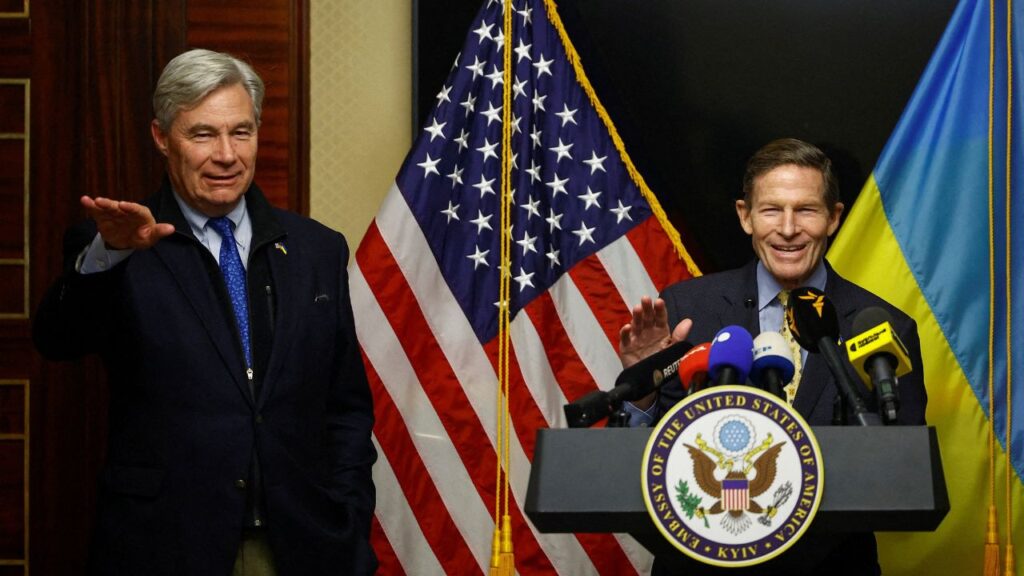Share
BIARRITZ, France — Never mind his differences with world leaders on China, trade, Russia, Iran and more. President Donald Trump’s takeaway message from the Group of Seven summit in France was “unity.” In fact, “flawless” unity.
During this year’s gathering of leaders of the world’s wealthiest democracies, Trump went to great lengths to portray it as something of a lovefest, papering over significant disagreements on major issues.
“If there was any word for this particular meeting of seven very important countries, it was unity,” Trump said at a news conference Monday closing out the two-day gathering in the French resort of Biarritz.
“We got along great,” he said. “We got along great.”
He continued that message Tuesday after returning home from France. “The G-7 was a great success for the USA and all,” he wrote in a tweet. “LameStream Media coverage bore NO relationship to what actually happened in France – FAKE NEWS. It was GREAT!”
The G-7 was a great success for the USA and all. LameStream Media coverage bore NO relationship to what actually happened in France – FAKE NEWS. It was GREAT!
— Donald J. Trump (@realDonaldTrump) August 27, 2019
After Trump disrupted the last two G-7 summits with his erratic behavior, other world leaders seemed determined to play along this year in the interest of keeping any negative drama out of the headlines.
First came the decision by French President Emmanuel Macron, the summit host, to scrap the annual practice of issuing a lengthy joint statement, or communique, at the summit’s conclusion.
Statement Plays Down Disagreements
The document typically spells out the consensus that leaders have reached on issues on the summit agenda and provides a roadmap for how they plan to tackle them.
“I think it’s against that background that Macron decided it’s not worth it” to issue a statement, said Thomas Bernes, a distinguished fellow at the Center for International Governance Innovation in Canada.
Instead, the leaders issued a final “declaration” that began, “The G7 leaders wish to emphasize their great unity and the positive spirit of their debates.”
Macron also sought to play down awkward differences and said that what the G-7 leaders were “really keen on was to convey a positive and joint message following our discussions.”
The French leader stressed that everyone had worked “together, hand in hand, with President Trump over these two days.”
For all of the happy talk, though, Trump came under pressure to end his lengthy trade dispute with China that is hurting other nations as well.
Macron said the dispute had served to “create uncertainty” that is “bad for the world economy.”
Differences over Russia didn’t stay hidden, either.

Trump Accepting of North Korea Missile Tests
Trump, as he had before last year’s summit, said he would like to see Russia re-admitted to the club. The former G-8 kicked Russia out after President Vladimir Putin annexed the Crimean Peninsula in 2014.
Other members of the Group of Seven besides France, Canada, Italy and the U.S. are Britain, Germany and Japan.
Canada’s Trudeau told reporters he had privately aired his objection to Russian readmittance.
“Russia has yet to change the behavior that led to its expulsion in 2014, and therefore should not be allowed back into the G-7,” he said at a news conference.
For all the courting of Trump by Japanese Prime Minister Shinzo Abe, Trump wouldn’t adopt Abe’s position that short-range ballistic missile tests by neighboring North Korea violate U.N. resolutions.
Trump insisted that he and Abe were on the “same page” — but he appeared to defend the missile tests by North Korea’s Kim Jong Un by saying a lot of other people were testing missiles, too.
“We’re in the world of missiles, folks, whether you like it or not,” he said.
Macron Addresses Summit Challenges
Trump also claimed that “great unity” existed on Iran, but he largely just restated his long-held views about the country, some of them hardly shared.
France, Germany and other G-7 members are unhappy that Trump withdrew the U.S. from a 2015 international pact that eased sanctions on Iran in exchange for the Iranians agreeing to limit their nuclear program.
Trump said the biggest conclusion the leaders reached was that Iran “can’t have nuclear weapons.” Far from a breakthrough, that has been the world’s position for decades.
Asked about his efforts to ensure that fighters for the Islamic State group be returned to their home countries across Europe rather than housed by the United States, Trump said during a meeting with German Chancellor Angela Merkel that the G-7 leaders had “a pretty good meeting.” But then he allowed that they had “not reached a total conclusion.”
“It’s unfair for the United States to take them, because they didn’t come from the United States,” he complained.
Macron flicked at the challenges of smoothing over differences by reaching back in history.
Seeking to justify the role of mediator between Iran and the United States that Macron is carving out, the French leader quoted one of his predecessors, World War II hero Gen. Charles de Gaulle, who said, “Diplomacy is trying to hold together broken windows.”
Categories

Cambodian National Dies in ICE Custody in Indiana


















